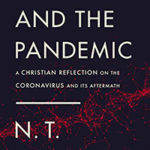Idolatry
By Stephen E. Fowl (Baylor University Press)
Stephen E. Fowl is professor of theology and dean of Loyola College of Arts and Sciences at Loyola University Maryland. Idolatry is his scholarly examination of what lies behind a Christian’s turning away from the one true God and toward a myriad of lesser things. It is not a light read.
 Fowl’s interest in idolatry arose over several years of teaching Introduction to Theology. Though the majority of students identify as Roman Catholic, he admits “they have very little direct exposure to the Bible.” He noticed they tend to take the first five books of the Bible at face value and then react strongly when they get to the prophets.
Fowl’s interest in idolatry arose over several years of teaching Introduction to Theology. Though the majority of students identify as Roman Catholic, he admits “they have very little direct exposure to the Bible.” He noticed they tend to take the first five books of the Bible at face value and then react strongly when they get to the prophets.
The prophets frequently condemn Israel and Judah for their idolatry. The students in Fowl’s class struggle to understand how people who had seen and experienced God’s miracles could turn to idolatry. Fowl explains turning to idols is a subtle and incremental process “of seemingly benign or even prudent decisions” that “allows us to keep God in view, in our peripheral vision.”
Old Testament prophets were not particularly successful in turning their audiences away from idolatry. Fowl believes contemporary audiences are no different than their forebears on that score. As a result, he believes it is better to learn what draws a moth to a flame than to call it back after it already is blindly on its way to destruction.
To steer clear of the destructive flame, Fowl seeks to “locate, identify, unlearn, and repent of the habits and dispositions that lead to idolatry before they do so.”
One step leading to idolatry is the separating of ourselves from the production of the things we consume. The more alienated we become from the production of our food, clothing and other possessions, the more apt we become to forget God and to fail to “delight in God’s goodness.”
Another step that becomes a habit is wanting more than what God offers—greed. Greed moves beyond the boundaries of God-ordered desire. Thanksgiving is a way to move back within the boundaries.
Fear also can turn a Christian to idolatry, spurring suspicion, preemption and accumulation in an attempt to gain security ourselves, rather than trusting in God for our security. Countervailing virtues to the effects of fear are hospitality, peacemaking and generosity, which are three expressions of love.
A desire to know also can be a step toward idolatry. Desiring novelty, an unbounded curiosity and the thought of possessing knowledge become ends in themselves and divide the Christian’s attention. The antidote is a singular focus on God.
Sign up for our weekly edition and get all our headlines in your inbox on Thursdays
Fowl concludes with an examination of whiteness as an expression of idolatry in the United States today. While an apropos topic, it seems disjointed from the preceding chapters. Even so, the strong negative reactions of some in the United States to calls for racial justice may itself serve as confirmation of Fowl’s thesis.
Eric Black, executive director/editor/publisher
Baptist Standard.














We seek to connect God’s story and God’s people around the world. To learn more about God’s story, click here.
Send comments and feedback to Eric Black, our editor. For comments to be published, please specify “letter to the editor.” Maximum length for publication is 300 words.